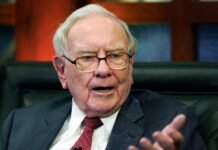Slow Ventures
- Slow Ventures keeps a small team and doesn't promote from within.
- The early-stage venture firm made an exception by elevating Yoni Rechtman to partner.
- Rechtman is a generalist investor who's helped source deals like SuperDial and Heave.
In 2022, when Yoni Rechtman's boss asked where he wanted to be in five years, the newly hired venture capitalist told him, "Not here."
What might have sounded like defiance was exactly what Kevin Colleran, managing director of Slow Ventures, wanted to hear. The firm doesn't promote from within. It keeps funds small — "easier to return many multiples of success," Colleran said — and so the firm needs fewer investors.
This month, Slow made an exception to its rule, giving Rechtman, 30, a seat at the partners' table.
The firm, now nearing $1 billion in investor capital, has four partners investing out of its core seed funds. Colleran says Rechtman is the first principal to be promoted to partner for those funds in 10 years; Megan Lightcap made partner in 2024 to co-lead the firm's creator-focused fund.
It's a precarious time for junior venture capitalists. Many came of age during the frothy post-pandemic boom, when deal flow was brisk, valuations soared, and portfolio companies seemed to double in value every few months. Then the market cooled and funds pulled back.
Suddenly, midlevel investors had fewer chances to prove themselves, and some of their once-glittering deals now looked painfully overpriced. The path to partnership, already murky, became even narrower. Some disillusioned investors left the industry altogether.
Back in 2022, Rechtman assumed he'd eventually leave Slow to raise his own fund. Plans changed, and not, he says, because the market soured. Through September, 68 debut funds closed, versus 183 in all of last year, per PitchBook. Emerging managers are also taking twice as long to raise their next funds — a headwind that would give any investor pause.
Rechtman says he's staying for a simpler reason. The job's not finished.
Early on, Slow general partner and early Facebook executive Sam Lessin gave Rechtman this advice: "Fish in waters where other firms aren't fishing." Rechtman took it somewhat literally.
This year, he grabbed a last-minute flight to Tampa to reconnect with a startup billing itself as "Uber for heavy-equipment repair." Founded in 2020, Heave has quietly assembled a network that it claims covers nearly a third of the country's heavy-machinery mechanics.
Rechtman closed a handshake deal with the founder over smoked fish, and Slow joined its $7 million seed round, which was announced in August. It's the kind of off-beat, unsexy bet that has become Rechtman's calling card.
That approach has nudged Slow into areas it might have otherwise overlooked, such as healthcare, growth buyouts, and what Rechtman calls "real-world businesses." This spring, Slow backed SuperDial, which builds voice agents for healthcare organizations and has already handled more than 1 million calls. Colleran said Rechtman also worked with him to close Journey, a travel rewards platform created by Brian Kelly, founder of The Points Guy.
Slow doesn't vote by unanimity. It runs on a simple rule: any two partners can greenlight a deal. Decision-making power is flat. "Because we are small and we trust each other, if two people like an idea, that's good enough," Colleran said.
Courtesy of Yoni Rechtman
Colleran, now in his forties, calls Rechtman a "younger and hungrier" network-builder. Rechtman hosts a twice-yearly mini-conference for young partners, principals, and emerging managers, and says a meaningful share of his deals now come through that circle.
He's also built an audience by publishing. He's written a weekly Substack for more than a year and says he has roughly 15,000 subscribers. Rechtman said if investors want credibility with founders on weird, non-consensus ideas, they have to put their thinking in public. "Frankly, I have a style that either attracts or repels founders," he said.
Instead of leaving Slow to raise a debut fund, Rechtman says he now sees a path to help build a differentiated franchise from inside a partnership.
As a Brooklyn native, he wants to do it from New York. The city is awash in seed checks, he says, but starved for growth capital to scale the most promising hometown companies.
Slow has raised three opportunity funds, totaling $295 million, to join later rounds for its top performers. This gives Rechtman a way to keep backing breakouts rather than watching them migrate to out-of-town investment firms.
"When something takes off in New York, other people make the money," Rechtman said. "I see an opportunity to change that."
Have a tip? Contact this reporter via email at mrussell@businessinsider.com or Signal at @MeliaRussell.01. Use a personal email address and a non-work device; here's our guide to sharing information securely.
Read the original article on Business Insider

































